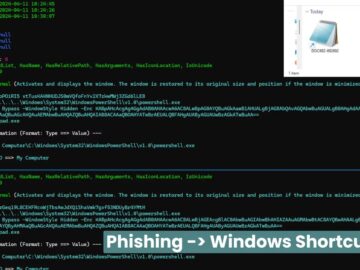A severe cryptographic vulnerability in the popular open-source Meshtastic project allows attackers to decrypt private messages and hijack nodes across LoRa mesh networks.
This flaw stems from duplicated encryption keys and insufficient randomness during key generation.
The issue affects multiple hardware platforms and poses significant risks to users relying on Meshtastic for secure off-grid communication in scenarios like emergency response and remote expeditions.
Vulnerability Mechanics and Impact
The flaw originates from two critical failures:
- Key duplication: Hardware vendors shipped devices with identical public/private key pairs due to cloning during mass flashing procedures.
- Low-entropy keys: The cryptographic library failed to properly initialize randomness pools on some platforms, weakening key generation.
Attackers exploiting this vulnerability can:
- Decrypt direct messages sent between affected devices using compiled lists of compromised keys.
- Hijack remote administration features by impersonating authorized administrators.
- Gain unauthorized control over nodes to manipulate network traffic or device function.
Mitigation and Patches
Meshtastic developers released firmware version 2.6.11 with critical fixes:
- Key generation delay: Keys are now generated when users first set their LoRa region, preventing vendor-side duplication.
- Entropy improvements: Added multiple randomness sources to strengthen cryptographic initialization.
- Compromised key detection: Devices now warn users if known vulnerable keys are detected.
An upcoming version (2.6.12) will automatically wipe compromised keys. For immediate protection, users should:
- Update devices to firmware 2.6.11 or later.
- Perform a factory reset using Meshtastic’s CLI: meshtastic –factory-reset-device.
- Manually generate high-entropy keys via OpenSSL for critical deployments.
This incident highlights challenges in securing decentralized communication:
- Supply-chain risks: Flashing processes in mass production created systemic vulnerabilities.
- Quantum vulnerability: While Meshtastic’s AES-256 encryption is quantum-resistant, its key exchange remains susceptible to future quantum attacks.
- Legacy device limitations: Pre-2.5.0 firmware versions lack PKC protection entirely.
Meshtastic’s maintainers emphasize that patched devices should prevent recurrence, but recommend periodic channel key rotation and avoiding private channels on unattended nodes.
The community-driven response demonstrates open-source adaptability, though the flaw’s discovery underscores the importance of rigorous hardware provisioning audits in security-sensitive deployments.
Find this News Interesting! Follow us on Google News, LinkedIn, and X to Get Instant Updates




